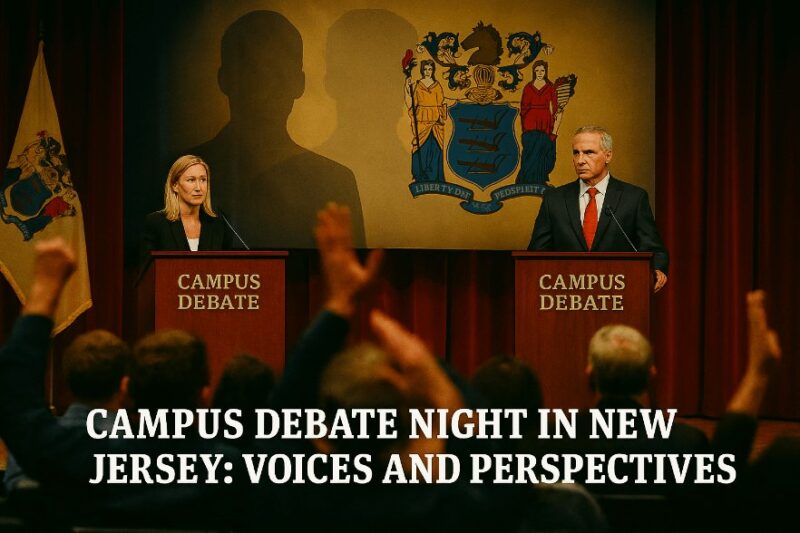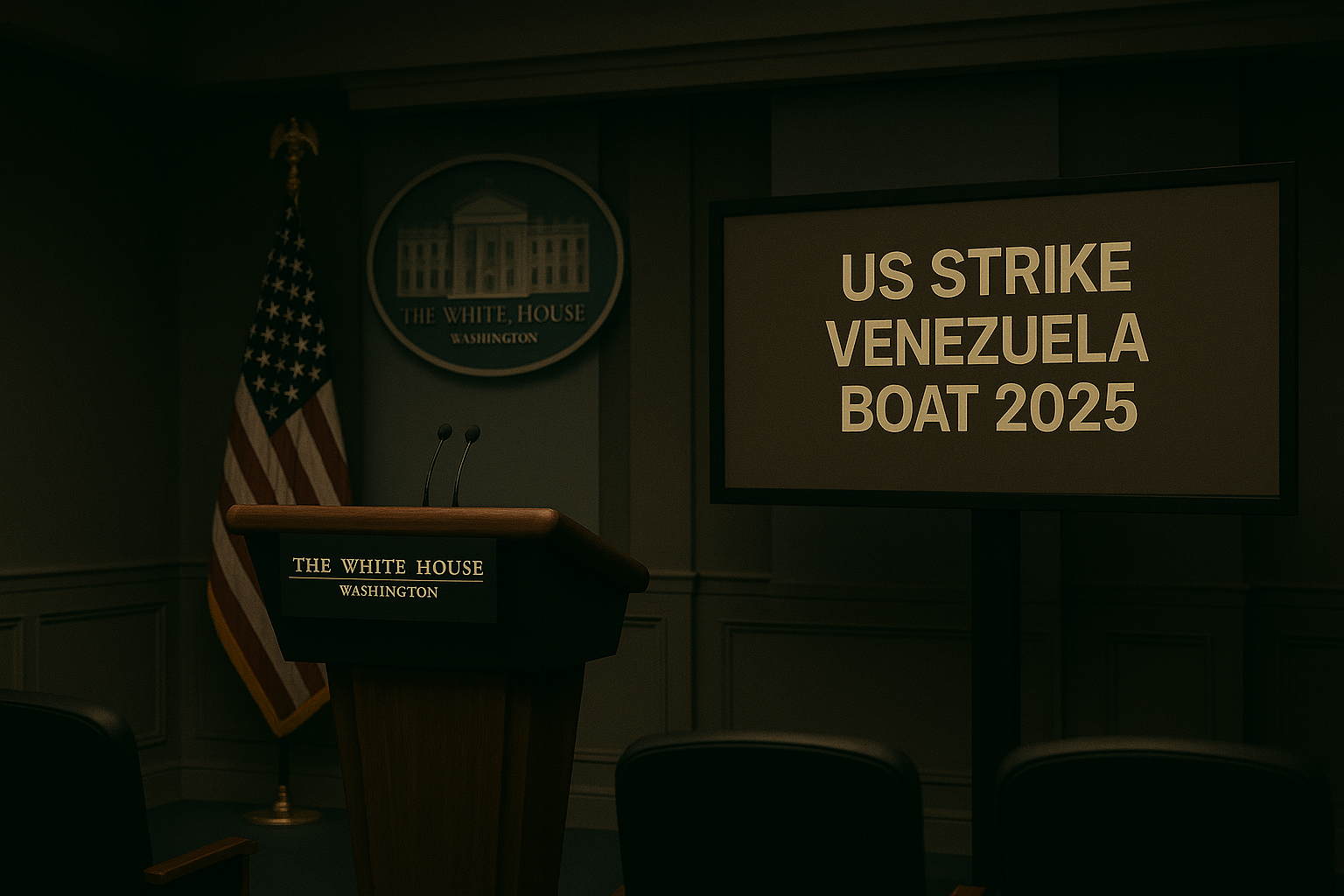Sparks Fly in Lawrenceville Showdown
In the packed auditorium of Rider University, where the scent of fresh coffee mingled with the tension of a state on edge, New Jersey’s gubernatorial hopefuls Mikie Sherrill and Jack Ciattarelli turned their first debate into a raw reckoning with America’s fractured soul. On September 21, 2025—just 11 days after conservative activist Charlie Kirk’s assassination at a Utah campus event—the candidates grappled with a moderator’s pointed question: Would they back bipartisan legislation branding political violence a hate crime? What began as measured vows for unity devolved into pointed accusations, with Ciattarelli slamming Sherrill’s post-resolution critique of Kirk, and Sherrill firing back on free speech’s fierce embrace. For voters like single mom Ana Rivera in Paterson, tuning in amid mail-in ballots’ arrival, this wasn’t theater—it was a visceral mirror to fears of silenced voices and shattered families, where Kirk’s death lingers like an open wound in the Garden State’s political heart.
The Human Toll: A State’s Shared Grief Fuels Fiery Exchange
For the Kirk family—Erika, widowed with two young children—the debate’s barbs evoked fresh anguish, their loss a shadow over every utterance. Sherrill, eyes steely with conviction, invoked her Navy oaths: “I can’t even imagine how the Kirk family feels… That should never happen to anyone because they speak out.” Her words hung heavy for attendees like 22-year-old college senior Jamal Hayes from Trenton, who lost a cousin to gun violence last year: “Hearing them talk Kirk hits home—my family just wants leaders who cool the heat, not stoke it.” Yet Ciattarelli’s retort—”My opponent… voted yes on a resolution to celebrate Charlie Kirk’s life, but then… sent out a statement that basically condemned him”—drew jeers, amplifying the room’s divide.
Sherrill’s clapback, defending her right to decry Kirk’s past views on MLK and women’s roles, elicited cheers but underscored the toll: Teachers resigning over Kirk-related posts, Shore memorials swelling with mourners, a Sussex stadium event canceled from overwhelming turnout. For N.J.’s 9.2 million residents—many in swing suburbs weary of national vitriol—this exchange wasn’t abstract; it’s the fear of neighbors turning foes, families like Hayes’ pleading for discourse that heals, not harms, in a year scarred by 150+ political attacks nationwide.
Facts and Figures: Key Moments from the Rider Debate
The 90-minute town hall-style clash, moderated amid tight security post-Kirk, drew 500 attendees and streamed to thousands via NJ PBS and News 12. On the hate crime bill for political violence—proposed amid N.J.’s rising incidents (up 25% since 2024)—both pledged support, but fireworks ensued.
| Moment | Sherrill’s Response | Ciattarelli’s Rebuttal | Audience Reaction |
|---|---|---|---|
| Initial Stance | “Fight against political hatred… Free speech, but never devolve into violence.” | “Unite, not divide… Support bill for ‘legal teeth.'” | Applause for unity |
| Kirk Resolution Critique | Voted yes Sept. 19; statement condemned Kirk’s “racist views” (e.g., MLK, women). | “Wrong… Condemned him within minutes.” | Jeers; Ciattarelli waves down |
| Free Speech Defense | “Fair to disagree… Stood up my entire life, offered to die for this country.” | “Hasn’t answered… Generalities, platitudes.” | Cheers for Sherrill; moderator intervenes |
| Closing Jab | “If you want to stand up that Martin Luther King was a bad guy… I have the right to say I disagree.” | N/A (final word to Sherrill) | Roaring cheers |
Polls pre-debate: Sherrill 46-44% lead (Monmouth, Sept. 2025); undecideds at 10%. Security: Metal detectors, 20 officers on site.
Broader Political Context: Kirk’s Shadow Looms Over N.J.’s Tight Race
Kirk’s September 10 slaying—by confessed gunman Tyler Robinson, 22, amid “left-wing hardening”—has supercharged N.J.’s contest, a bellwether for Trump’s trifecta defense. Sherrill’s dual stance—condemning murder, critiquing Kirk’s “racist” past (e.g., MLK “bad guy” clip)—drew GOP fire, with Ciattarelli labeling it “hypocrisy” and “disqualifying.” Echoing national rifts: Trump’s “radical left” blame, Kimmel’s suspension for similar jabs.
In N.J., where independents (35% of voters) sway outcomes, the debate spotlights divides: Ciattarelli’s “unite” pitch vs. Sherrill’s “speak up” ethos, amid 2025’s violence surge (N.J. incidents up 40%). Globally, it mirrors U.K. post-Riot rhetoric curbs; here, it’s a microcosm of midterm fury, with Sherrill’s 8-point edge (Quinnipiac) tested by Ciattarelli’s near-2021 upset.
What Lies Ahead: From Debate Dust-Up to November Ballots
A second debate looms October 8 at 7 p.m., ABC simulcast in N.Y./Philly markets—replacing “Jeopardy!” for prime-time punch. Lt. gov. hopefuls—Sherrill’s Dave Caldwell vs. Ciattarelli’s James Gannon—clash September 30 at Kean University. Mail-ins mailed today; in-person early voting October 7-November 2.
Resilience means action: Bipartisan hate crime bill gains traction, with N.J. AG probing post-Kirk threats (e.g., restaurant owner’s teen scolding). For voters like Hayes, it’s forums bridging gaps; globally, Canada’s civility pledges inspire. Success? Turning heat to healing, ensuring N.J.’s purple pulse beats bipartisan.
Conclusion: Echoes of Kirk in N.J.’s Debate Firestorm
The Sherrill-Ciattarelli debate’s Kirk clash wasn’t division for sport—it was democracy’s raw nerve exposed, where grief meets grit in the quest for safer discourse. As Sherrill defended dissent and Ciattarelli decried duplicity, their words pierced N.J.’s heart: Honor the fallen, protect the forum. In this heated gubernatorial race, may it spark not schisms, but safeguards—uniting a state, and nation, against violence’s venom.






